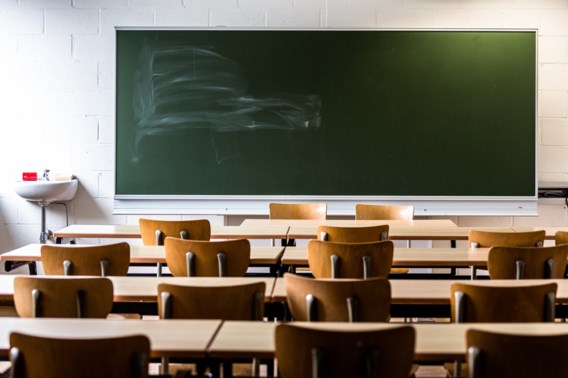Despite the rise in new Covid-19 cases in Belgium starting to slow, the virus continues to spread rapidly among children resulting in the closure of 115 Dutch-speaking schools in Flanders and Brussels.
The high infection rate, as well as a high percentage of teachers, being absent due to an illness or because they are in quarantine, has led many schools to close, the cabinet of Flemish Minister of Education Ben Weyts said.
So far, 115 schools of the 4,020 Dutch-speaking schools have done so, including 66 primary schools, 46 secondary schools and 3 boarding schools. Altogether, some 4,000 pupils in Flanders and Brussels are affected.
Virologist Steven Van Gucht told The Brussels Times on Wednesday that a big difference can be seen between the number of infections in primary and secondary schools.
“There are far more infections in primary schools than in secondary schools. The greatest increase in infections is seen in children under 12 who unfortunately have not been vaccinated, meaning it is easier for the virus to spread among them,” Van Gucht said.
Within one week, the number of Dutch-speaking schools telling pupils to stay at home has increased by 74% since last week, when 69 schools were closed.
Testing entire schools
One school, GBS Leefdaal in Flemish Brabant, decided to close its doors last Friday. Distance learning was introduced and, on Monday, a mobile team from the university hospital in Leuven (UZ Leuven) tested all pupils and teachers. One in four children tested positive.
"The results of the test confirmed a large spread of the coronavirus in the municipal primary school," the school said in a statement.
"On Friday, the mobile team of the UZ Leuven will return for a second test. This is to ensure that GBS Leefdaal can open its doors on Monday 6 December with as little risk as possible."
Related News
- 'Double victims': Survey highlights worrying effects of pandemic on children
- New measures announced for Belgian schools
Virologist Marc Van Ranst stressed that most schools are still open and the majority of classes can continue in person. "90% of all classes can continue in this manner so that in itself is a success," he told Het Nieuwsblad.
However, schools that remain open are facing staff shortages and pupil absences as infections spread rapidly.
New measures?
For the third time in three weeks, the Federal Government's core cabinet will meet on Friday morning for the Consultative Committee; education will likely be a hot topic for discussions.
For the first time, the Government's concern is directly targeted at schools, biostatistician Geert Molenberghs told VRT News. "We are particularly concerned about primary education as this represents a large group of unvaccinated people that meets on a daily basis. Because of the Delta variant, rates of infection and transmission are also higher in this group," Molenberghs said.
Lieven Boeve, top executive of Catholic Education Flanders, said he understands that new restrictions may be needed to curb infections in schools, but he pleaded for consistency in the measures, adding they cannot be stricter than in other places.
"We must do whatever is required to control the virus – in education facilities as well. But if a face mask obligation for children only applies in schools and not in other places where those children meet, then they will just infect each other there."

